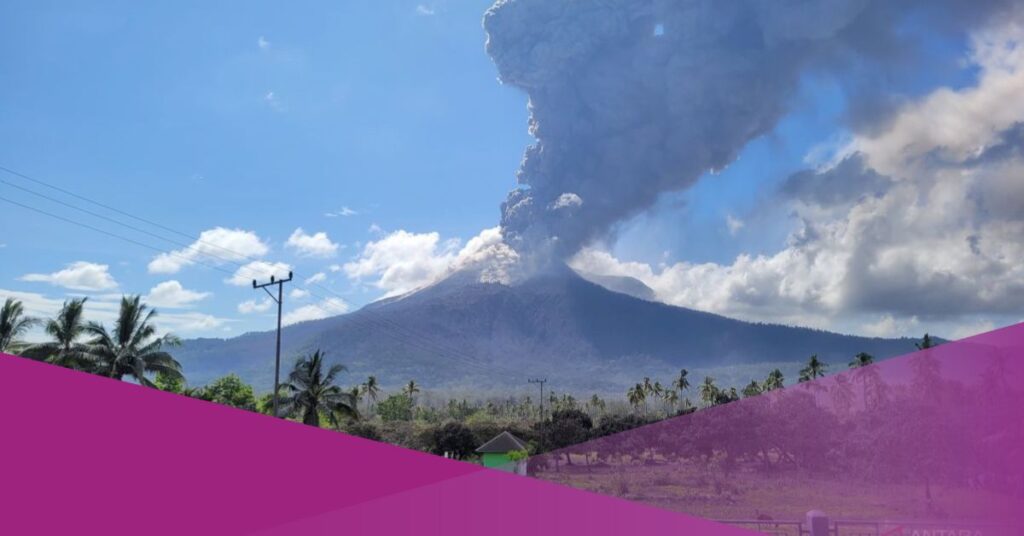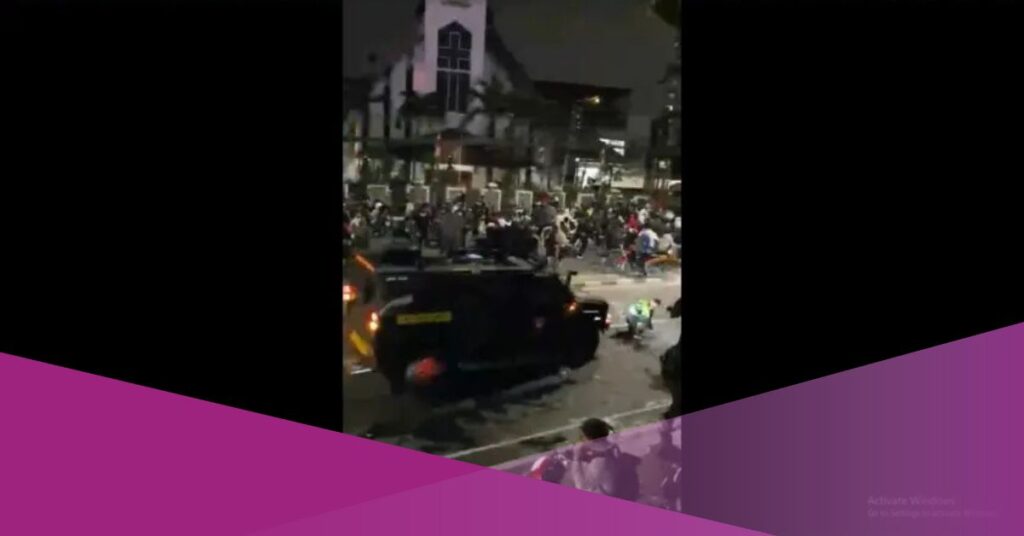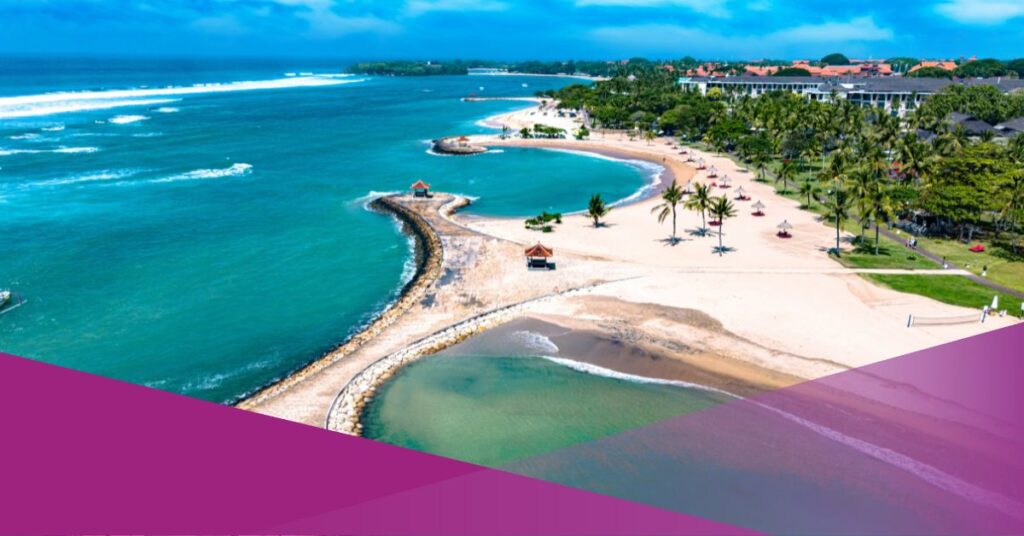Mount Lewotobi Laki-Laki in East Flores, East Nusa Tenggara, erupted twice on Monday, 7 July 2025, causing significant disruption to air travel across multiple airports in the region.
The eruption produced an ash column as high as 18,000 metres during the first blast at 11:05 WITA, followed by a second eruption at 19:32 WITA that sent ash up to 13,000 metres into the atmosphere.
As a result of the volcanic activity, Komodo International Airport in Labuan Bajo, West Manggarai, was temporarily closed from 18:00 WITA on 7 July until at least 07:00 WITA on 8 July. Head of the Komodo Airport Operator Unit (UPBU), Ceppy Triono, confirmed the closure due to the presence of volcanic ash in the airspace.
“Komodo Airport is closed and a NOTAM (Notice to Airmen) has been issued for closure starting at 18:00 WITA until Tuesday morning at 07:00 WITA,” Ceppy stated. He also confirmed that the closure may be extended depending on the results of paper ash tests. “If the results are negative, the airport can reopen,” he added.
Head of the Komodo Meteorological Station, Maria Seran, reported that ash from the eruption reached the airspace of West Manggarai and was observed settling on the ground.
“We urge the public to remain calm, wear masks when it rains ash, and monitor official information from BMKG,” she said.
Due to the ash hazard, 13 flights scheduled at Komodo Airport on 7 July were cancelled between 14:55 and 19:10 WITA. These included services by Garuda Indonesia, Batik Air, AirAsia, Super Air Jet, and Wings Air, affecting seven arrivals and six departures, including routes from Denpasar to Labuan Bajo.
Bali Flights Affected; PVMBG Warns of Further Eruptions
The impact of Mount Lewotobi’s eruption extended beyond East Flores. At I Gusti Ngurah Rai International Airport in Bali, a total of 24 flights were either cancelled or delayed.
This included 6 Virgin Australia flights to Melbourne, Gold Coast, and Sydney, 16 Jetstar Airways flights to various Australian cities, Singapore, and South Korea, and 2 AirAsia Indonesia flights to Labuan Bajo.
@cnn Mount Lewotobi Laki Laki erupted in Indonesia, sending a column of ash as high as 11 miles into the sky. Authorities placed the volcano on the highest alert level last month. #cnn #news #indonesia #lakilaki #lewotobi #volcano #weather ♬ original sound – CNN
Delays also affected Qantas Airways services to Sydney and Melbourne, and Air Busan flights to Busan. General Manager of I Gusti Ngurah Rai Airport, Ahmad Syaugi Shahab, confirmed in a press release that airport stakeholders were actively monitoring the evolving situation.
“Responding to the eruption of Mount Lewotobi Laki in East Flores Regency, East Nusa Tenggara on 7 July 2025, we can say that all related agencies at I Gusti Ngurah Rai Airport are jointly observing and updating the latest situation,” Syaugi said.
Airlines have arranged cancellations, rescheduling, and refunds via email. For passengers already at the airport, services are being provided in person.
“We provide a helpdesk located on the 2nd floor of the international and ticketing area at the domestic terminal to serve the refund, reschedule, or re-route process. We also provide mineral water and several areas at the airport that can be used to rest or place luggage,” he explained.
Other airports also reported disruptions. Fransiskus Xaverius Seda Airport in Maumere was closed until 8 July morning. In Kupang, El Tari Airport saw six cancelled routes, specifically Kupang–Maumere and Kupang–Larantuka, operated by Nam Air and Wings Air.
The Centre for Volcanology and Geological Hazard Mitigation (PVMBG) confirmed the scale of the eruption. According to its report, the eruption at 11:05 WITA produced grey to black ash rising 18,000 metres above the summit, drifting north, northeast, and northwest.
The eruption was accompanied by loud booms, hot clouds with a glide distance of up to 5 km, and rain containing gravel and ash.
“This eruption was accompanied by a strong boom and hot clouds with a maximum glide distance of 5 km to the north and northeast,” said Head of the Geological Agency Muhammad Wafid. The eruption was recorded with a seismograph showing a maximum amplitude of 47.3 mm and a duration of six minutes and 26 seconds.
Wafid also urged residents to avoid the hazard zone: “People should not enter a radius of 7 km from the crater, let alone 8 km in the southwest-northeast sector.”
As of Tuesday, 8 July 2025, Mount Lewotobi remains at Alert Level IV (Caution), with potential for further eruptions. BMKG and PVMBG continue to monitor the situation closely.










































